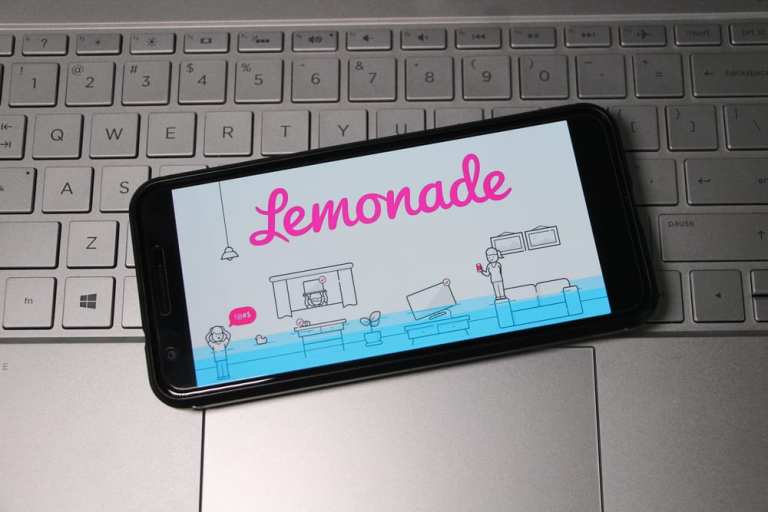Lemonade CFO On The Insurance Industry’s ‘Innovator’s Dilemma’

The insurance industry has been bogged down by sluggish service and even slower payouts for decades, and while policyholders have certainly weathered their fair share of friction from the sector’s legacy incumbents, those insurance companies themselves have also suffered from a lack of digitization and automation.
It’s a landscape that has created an opportune environment for technological innovation. But how can a five-year-old digital native really stack up against companies that have been operating for decades — or even centuries?
Developing a better policyholder experience certainly involves a hefty dose of automation and digital agility, says Tim Bixby, CFO at Lemonade, but that doesn’t mean the human element of insurance goes away entirely. He recently told Karen Webster about how new market entrants can rethink aspects of the industry that no longer work for the policyholder or insurance company, and which parts should be preserved to drive the evolution of the sector overall.
Ditching the Legacy Baggage
Like incumbent banks, some of the nation’s largest and oldest insurance companies have struggled to modernize in light of outdated infrastructure and workflow patterns that often resist any effort to change. But Bixby explained that this isn’t necessarily the fault of these firms.
“When a company was built many years ago — or, in the case of most of our large competitors, decades or a century ago — you have a process that’s built and optimized for when it was started,” he said. “As a result, you’ve got an industry that’s one of the biggest sectors on the planet in terms of dollar flow, but you’ve got players who face the pretty classic innovator’s dilemma: They’re led by smart people who want to embrace new technologies, but they’re really hamstrung by legacy systems.”
This is what Bixby described as the challenge of “legacy baggage,” which puts industry newcomers’ youth to their greatest advantage. As firms like Lemonade are able to build an insurance company from the ground up, they aren’t bogged down by outdated systems and processes — and many of the market’s biggest points of frictions can be overcome right from the start.
The Customer Onboarding Advantage
Tackling friction starts at the beginning. Bixby highlighted that many of the market’s biggest pain points — for both customers and insurance providers — can be addressed from the moment of policyholder onboarding.
The challenge of issuing claims payouts, for example, can be one of the most frustrating experiences from a consumer’s standpoint. Having to file the claim and manually provide bank account details to receive a direct deposit, or wait for a check in the mail, means there is more time between when an incident occurs and when the policyholder can access the funds needed to address it.
Bixby said this was an opportunity to set the stage for customers to get faster payouts right from the get-go.
“We hope you don’t, but we assume you’re going to have a claim, and therefore in the onboarding process, we set everything up as if you’re going to file a claim the next day,” he said, noting that this enables Lemonade to facilitate near-real-time payouts for about one-third of claims.
The data collected during the onboarding process is key to mitigating fraud risks for insurance companies, too. So when human interaction is required to fully vet a claim, payouts can still occur within 24 hours, Bixby said.
“Capturing so much data out front is primarily about the payment process, but it’s also about the probability or risk that a claim is valid,” he added.
The Human Touch
Though two-thirds of claims analyzed by Lemonade do involve human interaction, that’s not necessarily a downside for insurance companies today. Indeed, said Bixby, although technology and automation can support accelerated onboarding, underwriting and payouts, policyholders still crave a human experience when it comes to insurance.
Ensuring that human interaction between a policyholder and an adjuster occurs as quickly as possible is key to a positive end user experience, for example. Lemonade’s recent entry into the world of pet insurance was another initiative that required a human approach, because today, people consider pets as part of their family — not property, as the insurance space has historically treated them.
The claims payout itself is another opportunity to augment the end-user experience with a more humane approach. As Bixby noted, Lemonade’s strategy to offer charitable donations with excess claim funds is one that can humanize the insurance industry.
This was one of the first friction points Lemonade identified: an innate conflict between policyholder and insurance company, both vying for the same money. By adding a third party — a charitable cause — policyholders can take the amount they need and donate the rest.
In addition to changing the way consumers would typically view an insurance provider (“a big, scary insurance company that’s trying to take their money,” as Bixby described it), it also helps the firm combat so-called soft fraud, in which a policyholder files a claim for more funds than they actually need.
While technology is certainly key to tackling some of the insurance industry’s biggest friction points, Bixby emphasized the opportunity offered by mixing technology with a human touch to optimize the experience on both sides.
“We’re focused on and built around bots and algorithms and AI and technology — but as humans, we’re there for people in their time of need,” he said.